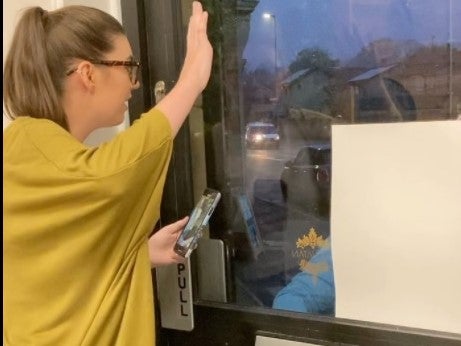‘Does Magna Carta mean nothing?’ Why are businesses quoting 1215 charter to try to stay open during lockdown?
No real suggestion that ancient charter has provisions for salons and soft play centres staying open during a pandemic

Your support helps us to tell the story
From reproductive rights to climate change to Big Tech, The Independent is on the ground when the story is developing. Whether it's investigating the financials of Elon Musk's pro-Trump PAC or producing our latest documentary, 'The A Word', which shines a light on the American women fighting for reproductive rights, we know how important it is to parse out the facts from the messaging.
At such a critical moment in US history, we need reporters on the ground. Your donation allows us to keep sending journalists to speak to both sides of the story.
The Independent is trusted by Americans across the entire political spectrum. And unlike many other quality news outlets, we choose not to lock Americans out of our reporting and analysis with paywalls. We believe quality journalism should be available to everyone, paid for by those who can afford it.
Your support makes all the difference.“Does Magna Carta mean nothing to you?” asked comedian Tony Hancock in a famous BBC sketch. “Did she die in vain?”
Not, it seems, if a West Yorkshire salon has anything to do with it.
Quinn Blakey Hairdressing in the village of Oakenshaw, near Bradford, has become the latest in a line of businesses to be fined after refusing to close during the coronavirus lockdown on the grounds that the restrictions somehow run counter to the charter of rights drawn up in 1215.
A viral video posted online shows owner Sinead Quinn pointing to a notice in the window quoting the medieval document while a clearly weary enforcement officer from Kirklees Council tells her she shouldn’t be trading.
“I stand on the common law,” says Ms Quinn, who doesn’t specify if she’s read the full original Latin text. “I do not consent to any fine.”
Yet if the rights of coiffeurs to remain open in a pandemic really were enshrined by King John and his barons that famed day at Runnymede, it seems that Kirklees Council was having none of it: the authority has now fined Ms Quinn £17,000.
Speaking on Monday, a council spokesperson listed a series of escalating penalties given to the business.
Ms Quinn is by no means the first to claim a legal immunity derived from the royal charter – with others including a bookshop in Nottingham and a gym in London.
A video of the owner of a soft-play centre in Liverpool informing two police officers that he had a right to stay open because of provisions within the document went viral earlier this month.
The owner is heard asking the officers if they have read it. “Can you summarise it?” comes the deadpan reply. “Obviously, the Magna Carta didn’t know about Covid-19.”
In an exchange that goes on for six minutes – all with children playing in the background – the owner appears to also touch on Thomas Paine’s Rights Of Man.
“Am I a man?” asks the owner.
“If you want to identify as a man, you’re a man,” answers the officer.
A momentary, puzzled pause. “I’m a man,” confirms the owner.
All of which perhaps raises the question: does Magna Carta actually offer a defence against lockdown closures.
From a complex, sprawling and much-debated charter comes a simple answer: no, it does not.
“It’s an obscure Latin text which modified English law to deal with a number of highly specific grievances,” Lord Sumption has said. As both a medieval historian and former Supreme Court judge, he knows a thing or two about the subject. “[It] had no abiding historical relevance.”
Those claiming otherwise – conspiracy theorists online, mainly – tend to refer to Article 61, which gave King John’s council of barons, and them alone, the right to rebel against him were he to break any of the charter’s other provisions.
Unambiguously, it did not give people the right to defy the rule of law – not even the owners of soft-play centres.


Join our commenting forum
Join thought-provoking conversations, follow other Independent readers and see their replies
0Comments